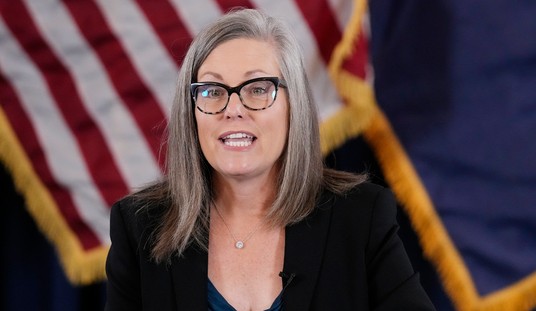Alabama has joined more than a dozen other states in prohibiting credit card companies from using gun store-specific merchant category codes, with Gov. Kay Ivey signing SB 281 into law last week. On today's Bearing Arms Cam & Co, National Shooting Sports Foundation senior vice president and general counsel Larry Keane applauded Ivey's decision, adding he's hopeful that Louisiana will be the next state to enshrine these protections into state law.
Colorado has joined California in mandating the use of these codes, but Gov. Ivey signed the bill, and that made Alabama the fifteenth state to pass the Second Amendment Financial Privacy Act. And we expect and are hopeful that bill will pass in Louisiana and be signed by Gov. Landry, which would bring us to sixteen. There's federal legislation with the same name that's been introduced in the House by Rep. Elise Stefanik and in the Senate as well. So we're trying to build sponsorship for those two bills.
While Keane is delighted that so many states are taking steps to prevent the use of these codes, he says that ultimately they need to be prohibited nationwide through congressional action. Otherwise, gun owners in states like California, Colorado, and other Democrat enclaves are going to be subjected to an ill-conceived policy that will likely place them under legal scrutiny for their lawful purchases at gun shops.
You know, the code doesn't do what the gun control groups think it does. It just tells you, at most, where the transaction is taking place. It tells you nothing about what's in the basket at checkout. You don't know whether it's waders for duck hunting, decoys, gun cleaning supplies, a safe, or whether it's firearms or ammunition.
Yet according to the anti-gun activists pushing for these codes to be mandated, financial institutions will be able to spot "suspicious" transactions and report them to the federal authorities based on nothing more than the dollar amount spent at a gun shop.
Keane believes this is only the first step when it comes to the codes. Once it becomes clear that the MCCs don't allow institutions to look into a shopper's cart, he says the gun control lobby will take the next step; requiring MCCs for specific firearm and ammunition purchases.
It's going to be used to say, 'No no no, that's the wrong type of gun. That's too many guns. That's too much ammunition', and denying transactions. Then they'll file dubious Suspicious Activity Reports about the lawful exercise of a constitutional right. Imagine banks monitoring what books, movies, or magazines you purchased and stopping the transaction because, you know, we don't like that political point of view.
Even at the first step the mandated use of these category codes is going to be problematic. Companies like Visa and American Express will be incentivized to over-report any "suspicious" transactions, if for no other reason than to cover their corporate rear-ends. It's impossible to identify someone who's planning on carrying out a mass shooting based solely on a purchase at a gun store, but that won't stop gun control groups from suing these companies if and when someone carries out an attack without their previous purchases being flagged.
These corporations are going to flag many transactions or simply decline to proceed with many of them; either of which would be just fine with the gun control lobby. Sure, they'd love to have these companies compile a backdoor gun registry, but it would still be a huge victory for the prohibitionists if they're able to curtail the use of credit cards when buying arms or ammunition.
While Stefanik's bill may have the votes in the House, it's not likely to come in the Senate anytime soon. However, Keane says that a Congressional Review Act resolution that would rescind the ATF's new "engaged in the business" rule does stand a chance of getting a vote in both chambers. The Senate's resolution is expected to be filed today, and it only takes a simple majority in both chambers to halt enforcement of the rule.
Keane is curious to see where Democrats like Jon Tester, who's facing a tough re-election fight in ruby-red Montana, will come down on the resolution against the ATF rule that could turn millions of lawful gun owners into "unlicensed gun dealers" simply for offering a firearm for sale. Keane mentioned Maine Sen. Angus King and Arizona's Kyrsten Sinema as other potential pickups for the resolution, and I'd add Joe Manchin as another possibility.
Check out the entire conversation with Larry Keane in the video window below, and be sure to tune in on Thursday as well, when we'll be talking with California Rifle & Pistol Association president Chuck Michel about the potential for the Supreme Court to grant cert to an "assault weapons" ban case as well as updates on the innumerable lawsuits CRPA is involved in that are challenging California's draconian and dystopian gun laws.









Join the conversation as a VIP Member